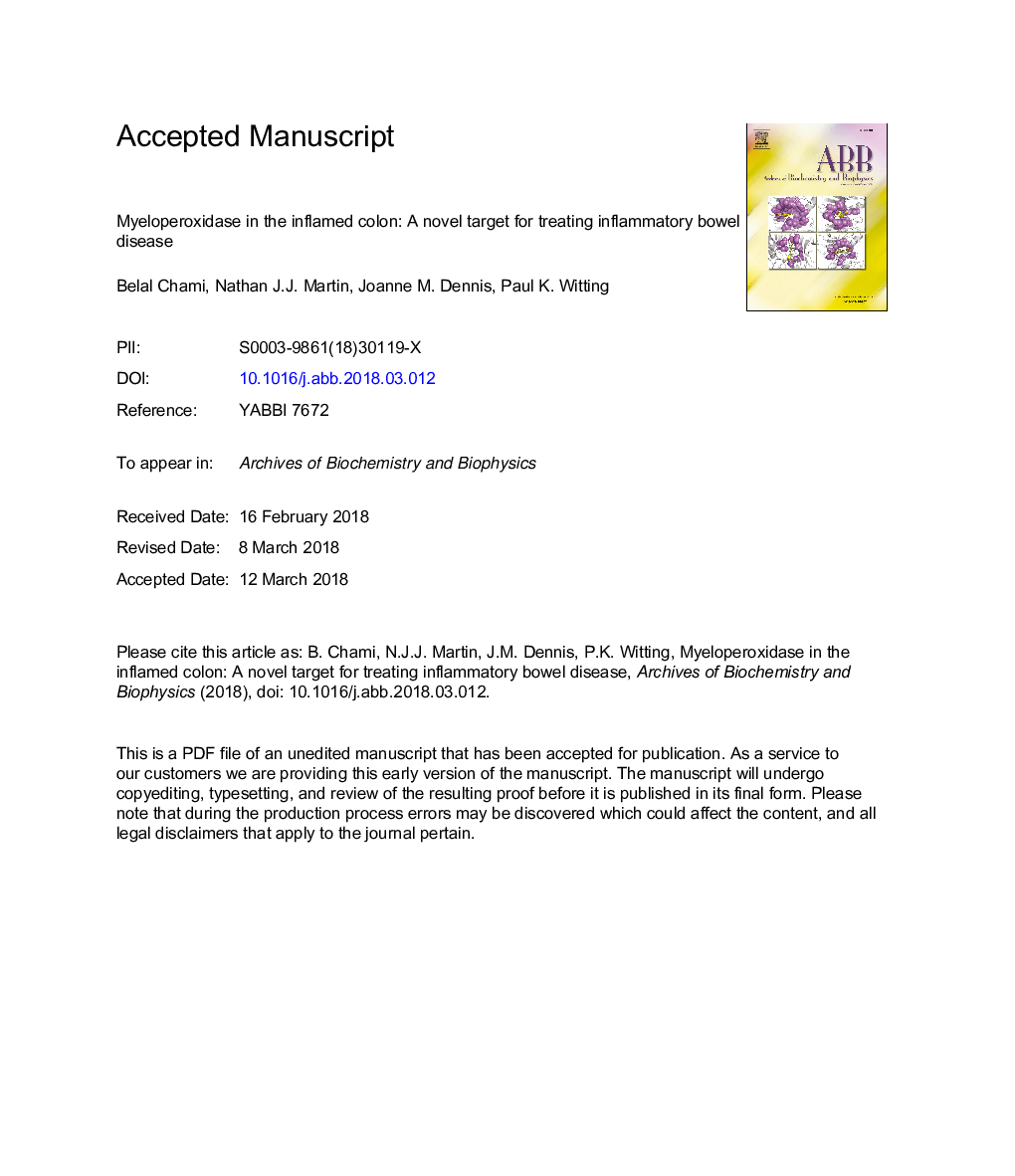| Article ID | Journal | Published Year | Pages | File Type |
|---|---|---|---|---|
| 8288660 | Archives of Biochemistry and Biophysics | 2018 | 30 Pages |
Abstract
Inflammatory bowel disease (IBD) is a debilitating disorder involving inflammation of the gastrointestinal tract. The incidence of IBD is increasing worldwide. Immunological responses in the gastrointestinal (GI) tract to altered gut microbiota, mucosal injury and loss of intestinal epithelial cell function all contribute to a complex mechanism underlying IBD pathogenesis. Immune cell infiltration, particularly neutrophils, is a histological feature of IBD. This innate immune response is aimed at resolving intestinal damage however, neutrophils and monocytes that are recruited and accumulate in the GI wall, participate in IBD pathogenesis by producing inflammatory cytokines and soluble mediators such as reactive oxygen species (ROS; one- and two-electron oxidants). Unregulated ROS production in host tissue is linked to oxidative damage and inflammation and may potentiate mucosal injury. Neutrophil-myeloperoxidase (MPO) is an abundant granule enzyme that catalyses production of potent ROS; biomarkers of oxidative damage (and MPO protein) are increased in the mucosa of patients with IBD. Targeting MPO may mitigate oxidative damage to host tissue and ensuing inflammation. Here we identify mechanisms by which MPO activity perpetuates inflammation and contributes to host-tissue injury in patients with IBD and discuss MPO as a potential therapeutic target to protect the colon from inflammatory injury.
Keywords
3-Nitro-tyrosineMMPPMNHOClPTPIBDGPXGSHMPOMAPKNO•O2•−ROSSuperoxide radical anionhypochlorous acidOxidationInflammatory bowel disease (IBD)Crohn's diseaseInflammatory bowel diseaseTyrTyrosineSODpolymorphonuclear leukocytesmatrix metalloproteinasemyeloperoxidaseneutrophilNitric oxideProtein tyrosine phosphataseColonUlcerative colitisMAP kinasemitogen-activated protein kinasesGlutathioneReactive oxygen species
Related Topics
Life Sciences
Biochemistry, Genetics and Molecular Biology
Biochemistry
Authors
Belal Chami, Nathan J.J. Martin, Joanne M. Dennis, Paul K. Witting,
